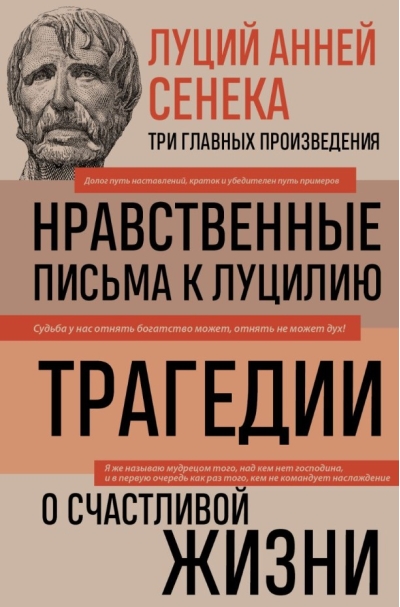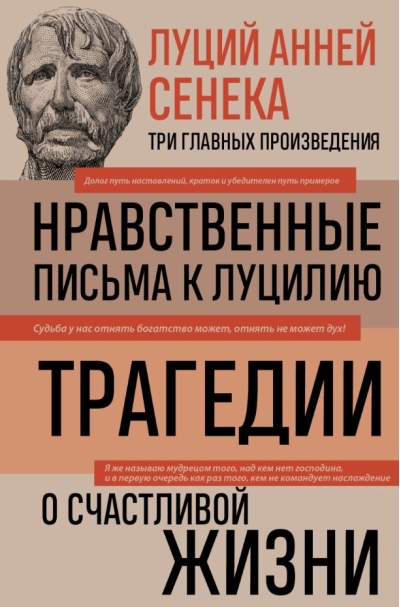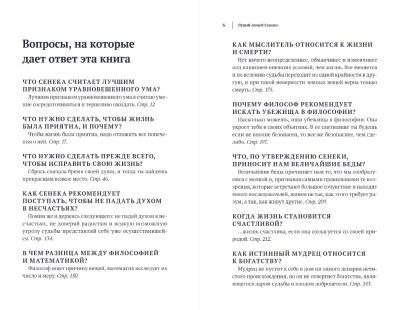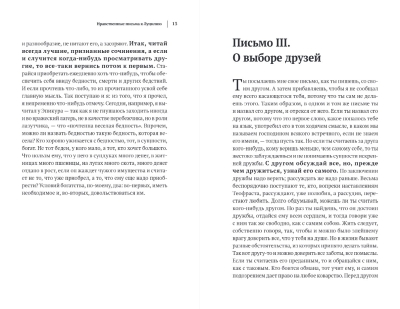Moral Letters to Lucilius. Tragedies. On the Happy Life
9.99 €
In stock
Lucius Annaeus Seneca was a major Roman Stoic philosopher, tutor of Nero, poet and statesman. His works were written in simple and accessible language, and therefore attracted the attention of both his contemporaries and Renaissance philosophers; he was called "the most interesting Stoic in the world." Seneca emphasized that "virtue alone is sufficient for happiness," so a sage must be emotionally resilient to adversity. His Letters to Lucilius demonstrate Seneca's desire for ethical perfection and "represent a kind of philosophical testament to posterity." "The destructive passions, especially anger and sorrow, must be rooted out or curbed in accordance with reason." As a tragedian, he is best known for such plays as Medea, Thyestes and Phaedra. Seneca's influence on subsequent generations is enormous: during the Renaissance, he was "a sage who was admired and revered, even by Christian philosophers and clergy; master of literary style and a model of dramatic art." These words of the English scholar Edward F. Watling describe Seneca's philosophical legacy in the best possible way.
The book contains the philosopher's most striking and popular works, divided into 3 main blocks:
"Moral Letters to Lucilius" is a work of the epistolary genre. In them, the author gives advice on how to build your life in accordance with the philosophy of Stoicism. The letters are among the most famous and significant works of Seneca and Roman literature in general.
The second block contains Seneca's tragedies, namely "Medea", "Phaedra", "Oedipus", "Thyestes", "Agamemnon" and "Octavia". Written primarily on ancient Greek subjects, these tragedies influenced the development of ancient Roman literature and European drama. They inspired Shakespeare and the playwrights of French classicism Corneille and Racine. The purpose of Seneca's tragedies is to convince of the need to restrain the passions that take hold of a person: love and hatred, the desire for power and unlimited authority.
Finally, the treatise "On the Happy Life" shows what principles, according to Seneca, one must adhere to in order to achieve harmony and happiness in one's life.
If you are interested in philosophy in general and the philosophy of Stoicism in particular, the history of Ancient Rome, ancient tragedies, this book will become an indispensable collection of significant works by the ancient Roman philosopher.
The book contains the philosopher's most striking and popular works, divided into 3 main blocks:
"Moral Letters to Lucilius" is a work of the epistolary genre. In them, the author gives advice on how to build your life in accordance with the philosophy of Stoicism. The letters are among the most famous and significant works of Seneca and Roman literature in general.
The second block contains Seneca's tragedies, namely "Medea", "Phaedra", "Oedipus", "Thyestes", "Agamemnon" and "Octavia". Written primarily on ancient Greek subjects, these tragedies influenced the development of ancient Roman literature and European drama. They inspired Shakespeare and the playwrights of French classicism Corneille and Racine. The purpose of Seneca's tragedies is to convince of the need to restrain the passions that take hold of a person: love and hatred, the desire for power and unlimited authority.
Finally, the treatise "On the Happy Life" shows what principles, according to Seneca, one must adhere to in order to achieve harmony and happiness in one's life.
If you are interested in philosophy in general and the philosophy of Stoicism in particular, the history of Ancient Rome, ancient tragedies, this book will become an indispensable collection of significant works by the ancient Roman philosopher.
See also:
- All books by the publisher
- All books by the author
- All books in the series Three Major Works. Library of Selected Works













